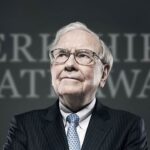- Home
- Billionaires
- Investing Newsletters
- 193CC 1000
- Article Layout 2
- Article Layout 3
- Article Layout 4
- Article Layout 5
- Article Layout 6
- Article Layout 7
- Article Layout 8
- Article Layout 9
- Article Layout 10
- Article Layout 11
- Article Layout 12
- Article Layout 13
- Article Layout 14
- Article Sidebar
- Post Format
- pages
- Archive Layouts
- Post Gallery
- Post Video Background
- Post Review
- Sponsored Post
- Leadership
- Business
- Money
- Small Business
- Innovation
- Shop
Recent Posts
Warren Buffett: The Oracle of Omaha

Warren Buffett, known as the “Oracle of Omaha,” is widely regarded as one of the most successful investors in history. Born on August 30, 1930, in Omaha, Nebraska, Buffett showed an early interest in business and investing. His father, Howard Buffett, was a stockbroker and U.S. Congressman, which exposed Warren to financial topics from a young age. At just eleven years old, Buffett made his first stock purchase, buying shares of Cities Service Preferred. His early experiences with money and investment laid the foundation for a career that would eventually reshape the world of finance.
Buffett attended the University of Nebraska and then went on to study at Columbia Business School under the tutelage of Benjamin Graham, a legendary figure in the world of value investing. Graham’s philosophy, focusing on buying undervalued companies with strong fundamentals, deeply influenced Buffett’s investment strategies. After graduating, Buffett worked briefly for Graham’s firm, Graham-Newman Corp, where he honed his analytical skills and solidified his reputation as a sharp, disciplined investor.
Returning to Omaha, Buffett launched Buffett Partnership Ltd. in 1956. With a small group of investors, he employed Graham’s value investing principles to achieve impressive returns. By 1965, Buffett had gained control of Berkshire Hathaway, a struggling textile manufacturing company. Rather than focusing on textiles, Buffett used Berkshire as an investment vehicle, acquiring a variety of businesses and stocks. Over time, Berkshire Hathaway evolved into a conglomerate holding company with investments in insurance, railroads, utilities, manufacturing, and consumer goods.
Buffett’s investment philosophy is famously straightforward but profoundly effective. He looks for companies with strong brand names, consistent earnings, good management, and simple business models. He is known for his preference for long-term investments, often holding stocks for decades. Some of his most notable investments include Coca-Cola, American Express, and Wells Fargo. Buffett’s patient, value-driven approach stands in contrast to the frenetic trading that characterizes much of Wall Street, earning him admiration across the financial world.
Despite his massive wealth, Buffett is famously frugal. He still lives in the Omaha house he purchased in 1958 for $31,500 and enjoys simple pleasures like McDonald’s breakfasts and playing bridge. His unpretentious lifestyle, combined with his homespun wisdom and philanthropy, has made him a beloved figure well beyond the realm of finance. His annual letters to Berkshire Hathaway shareholders are eagerly read not just for investment insights but also for their wit and wisdom on life and business.
Buffett’s partnership with fellow billionaire Bill Gates has led to significant philanthropic efforts. In 2006, Buffett announced that he would give away the majority of his wealth to charitable causes, primarily through the Bill & Melinda Gates Foundation. This act of generosity is one of the largest philanthropic commitments in history. Together with Gates, he launched The Giving Pledge, encouraging other billionaires to commit at least half their fortunes to charity during their lifetimes or in their wills.
Buffett’s leadership style is notable for the autonomy he grants the managers of Berkshire Hathaway’s various businesses. He chooses leaders carefully and trusts them to run operations independently. This decentralized approach has contributed to the company’s success and stability over the years. His emphasis on trust, integrity, and long-term thinking has influenced generations of business leaders and investors.
Over the decades, Buffett has built Berkshire Hathaway into one of the largest and most respected companies in the world. The company owns well-known businesses like GEICO, BNSF Railway, and Dairy Queen and holds substantial stakes in public companies like Apple. His prudent management has enabled Berkshire to weather financial storms, including the 2008 financial crisis, better than many others.
Buffett’s public persona combines a folksy charm with razor-sharp intellect. His annual shareholder meetings, often called the “Woodstock for Capitalists,” attract tens of thousands of attendees to Omaha, eager to hear his thoughts on business, investing, and life. He often uses humor and storytelling to convey complex financial concepts in an accessible way, helping to demystify investing for the average person.
Despite his advanced age, Buffett remains deeply involved in Berkshire Hathaway. Though he has identified successors, including Greg Abel, to eventually take over leadership, Buffett’s influence continues to shape the company’s strategy and culture. His enduring success, humility, and generosity ensure that he will be remembered not just as a great investor but also as a role model for responsible capitalism.
Warren Buffett’s life is a testament to the power of discipline, patience, and integrity. He has shown that immense success can be achieved without compromising one’s principles. His journey from a boy selling chewing gum door-to-door to one of the wealthiest and most respected people on the planet is an inspiring story that continues to captivate people around the world. His emphasis on rational thinking, continuous learning, and ethical behavior offers valuable lessons not just for investors, but for anyone seeking to lead a meaningful and successful life.
Buffett’s legacy will endure through both his investment achievements and his extraordinary philanthropic contributions. He has set a powerful example by demonstrating that wealth can and should be used to improve the world. Warren Buffett’s story is more than a story of financial success; it is a story of wisdom, character, and the enduring power of doing things the right way.
Recent Posts
Categories
- 193 Countries Consortium Partner1
- 193cc Digital Assets2
- 5G1
- Aerospace & Defense48
- AI37
- Arts3
- Banking & Insurance11
- Big Data3
- Billionaires1,388
- Boats & Planes1
- Business332
- Careers13
- Cars & Bikes79
- CEO Network1
- CFO Network17
- CHRO Network1
- CIO Network1
- Cloud10
- CMO Network18
- Commercial Real Estate7
- Consultant1
- Consumer Tech194
- CxO1
- Cybersecurity73
- Dining1
- Diversity, Equity & Inclusion4
- Education7
- Energy8
- Enterprise Tech29
- Events11
- Fintech1
- Food & Drink2
- Franchises1
- Freelance1
- Future Of Work2
- Games149
- GIG1
- Healthcare79
- Hollywood & Entertainment203
- Houses1
- India’s 1000 Richest1
- Innovation46
- Investing2
- Investing Newsletters4
- Leadership65
- Lifestyle11
- Manufacturing1
- Markets20
- Media327
- Mobile phone1
- Money13
- Personal Finance2
- Policy569
- Real Estate1
- Research6
- Retail1
- Retirement1
- Small Business1
- SportsMoney42
- Style & Beauty1
- Success Income1
- Taxes2
- Travel10
- Uncategorized13
- Vices1
- Watches & Jewelry2
- world's billionaires1,357
- Worlds Richest Self-Made Women2
Related Articles
Lui Che Woo: A Visionary Entrepreneur and Philanthropist
Lui Che Woo is one of Hong Kong’s most remarkable business figures,...
By 193cc World's BillionairesMay 15, 2025Chen Bang: The Visionary Behind China’s Healthcare Revolution
Chen Bang, a name that resonates deeply within the corridors of China’s...
By 193cc World's BillionairesMay 15, 2025Idan Ofer: A Life of Industry, Influence, and Global Impact
Idan Ofer is a prominent Israeli businessman whose life and career span...
By 193cc World's BillionairesMay 13, 2025The Life and Legacy of Kwong Siu-hing
Kwong Siu-hing is a prominent figure in Hong Kong’s real estate industry,...
By 193cc World's BillionairesMay 13, 2025















Leave a comment